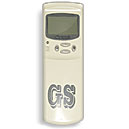|
|
|
|
SCENAR studies in the Cancer Clinic SCENAR therapy was applied in the following complications:
1. In the stage of special antitumor therapy for:
2. In the rehabilitation stage for: Oncology belongs to the integrative medical discipline that closely interacts with surgery, chemotherapy and radiotherapy. However, using multiple or combined methods of cancer therapy may cause complications that aggravate the clinical course of a patient’s condition and may even extend that person’s stay in the hospital. Therefore, newly-developed effective technologies are of paramount importance from a scientific as well as a practical perspective. For this purpose, the SCENAR technology was chosen and used in stages of antitumor therapy and rehabilitation (follow-up care).
41 cancer patients included in the study were treated for: Patients in all the above cases were engaged in appropriate pathogenic (anti-inflammatory, detoxifying, etc.) treatments. The SCENAR therapy was used as an additional remedy either in the Individually Dosed or Constant mode of treatment as well as a combination of the two modalities. Healing results were evaluated according to both quantitative (how soon the complications were eliminated) and qualitative (to what extent the functions of the diseased organ or system were improved) observations. The postoperative wound erysipelas was cured within two days (the cure usually takes between 7 and 10 days). A vast erysipelas in the foot and shin (following endolymphatic chemotherapy and radiotherapy) was healed within 10 days (the cure usually takes 3-4 weeks). A drug allergy (hives) was arrested within 2 hours, while renal colic was relieved within 30 minutes. The patients treated with SCENAR devices for acute pyelonephritis developed an exacerbation of the condition, but the symptoms were temporary and did not significantly reduce the patients’ functional activity or affect their stay in the hospital. Use of SCENAR therapy for post-operative wound infections had two effects:
*The fester quickly matured or dissolved, and Additionally, patients experienced a modest improvement (10%-15%) in the reparative regeneration of the festered cavity. Working with the SCENAR device around the incisional wound before its closure (e.g. for nephrectomy) slowed the wound bleeding, and because of this, probably reduced the incidence of purulent complications. The SCENAR therapy was effective for pain relief in cancerous growths, though the effect was only temporary (from several hours to 24 hours). Two patients with metastases in lymph nodes and muscles from renal carcinoma (the tumor could be palpated) took five sessions of SCENAR therapy. Both reported significant pain reduction and a decrease in tumor size by 15% - 20%. Following SCENAR therapy, one of the patients underwent surgery where doctors removed tissue and morphologically verified metastasis from transient cell carcinoma in the kidney with resulting suppuration at the perifocal inflammation, which helped delimit the tumor from healthy tissue. This effect was attributed to a probable reaction of the body to the SCENAR therapy. Two patients with breast cancer, following a mastectomy (mammary removal) and radiation therapy, developed lymphostasis in the arm and shoulder. Fifteen SCENAR sessions did not achieve any significant results, though both patients did report temporary improvement in arm function, which had a positive psychological effect. However, SCENAR therapy was effective for osteochondrous pain relief, intestinal colic (fecal boluses were moved out) and renal colic. One female patient, following nephrectomy (kidney removal) due to renal carcinoma, developed a gallstone. Ten sessions of SCENAR therapy reduced its size by one-third. Another female patient had her renal calculus fragmented and passed it after six SCENAR sessions. ___________________________________________________________________________________________Scenar studies in Burdenko Neurosurgery Institute Health Ministry of the Russian Federation
All patients experienced increased activity in their extremities, and pain was either reduced or entirely eliminated. Patients with urinary disorders also improved. Without any special treatment of additional zones, cardio-vascular and digestive functions were normalized.
Scenar studies in Scientific Research Institute of Pediatrics and Infantile Surgery,
Russian Health Ministry
At the Pediatric Psychoneurology Department, medical tests were conducted with children from 4 months to 3 years old, with arrested motor development and consequences of birth injuries.
Scenar studies in Russian Scientific Research Institute of Traumatology and
Orthopedics after R.R. Vreden Russian Health Ministry
Scenar was used on a group of post-surgical bones and joints patients. All patients experienced reduced edema of operated limbs, fast relief of inflammatory effects, and fistula closures. Patients with algetic and radicular syndrome experienced fast pain relief and overall improvement. Scenar studies in Academician I.P. Pavlov State Medical University, St. Petersburg. Russian Health Ministry
Study was conducted from Dec. 1997 to Feb. 1998 in the Fourteenth Child Health Center of the Petrograd District of St. Petersburg, by the Pediatrics Chair Research Workers. Twenty five children suffering from the night-time bedwetting were totally cured during the clinical tests. Children with urologic enuresis were not included in the group. Every child received 4-10 sessions weekly. In all cases the results were positive: enuresis stopped completely or episodes became solitary. Enuresis treatment with the SCENAR Therapy can be recommended for ambulatory practice.
Scenar studies in Central Military Scientific and Research Aviation Hospital.
Russian Health Ministry Scenar was applied to a group of patients suffering from spinal column and joints problems, lesions of central and peripheral nervous system of different degrees, vegetative and trophic disorders, pain and surface sensitivity. In all cases quick relief of pain and symptoms was observed, more pronounced under acute processes. Positive reaction of the body as a result of the device’s as the response at device’s exposure, are still go on for some days after it's application. Approved by hospital's head on research, candidate of medical science A.P. Kozlovsky. ___________________________________________________________________________________________
|
| |||||||||||||||||||||||





